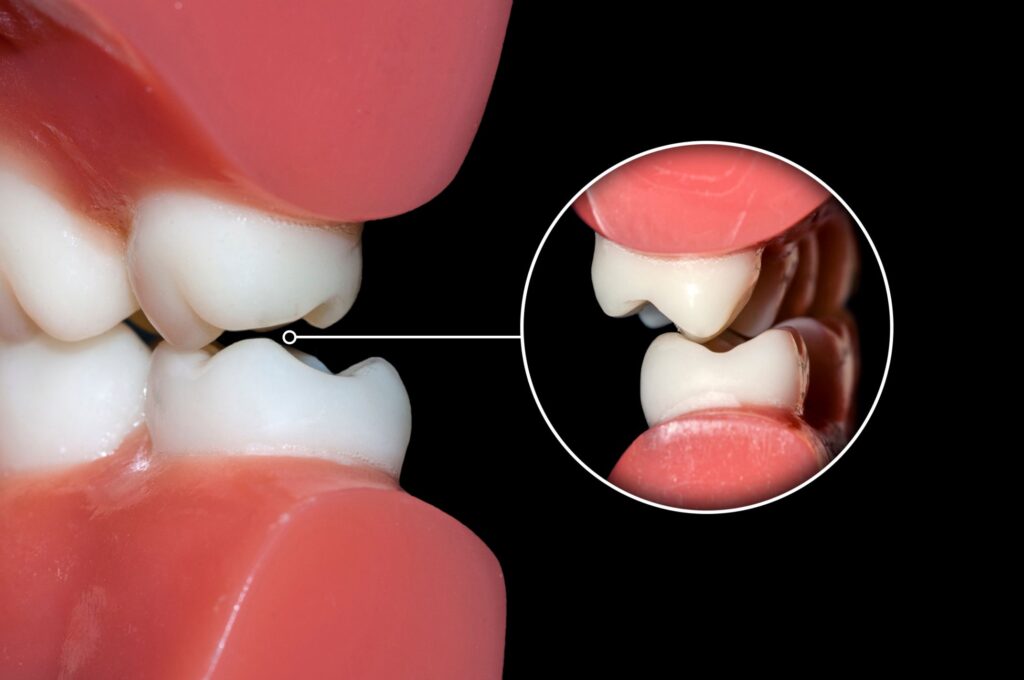Pressure Problems: Can I Get Dental Implants with Bruxism?

Many experts consider dental implants the ideal way to replace missing teeth because of their unique benefits. Of all the options, they’re the only ones embedded into your jawbone, giving them increased strength and stability.
These prosthetics are also incredibly durable and can potentially last 25+ years if cared for correctly, but that doesn’t make them invincible. If you suffer from bruxism, or chronic teeth grinding, you might wonder whether your condition could harm dental implants. Continue reading to learn more about why you can set your concerns aside!
What is Bruxism?
Bruxism refers to the common condition of frequently subconsciously clenching your teeth together, often at night when you’re sleeping. All the extra pressure exerted by this habit can prematurely wear down your enamel, leaving your teeth more vulnerable to decay, disease, and damage. Furthermore, it stresses your TMJ (temporomandibular joints) that connect your jaw to your skull, which can cause discomfort or a stiff or locked jaw.
How Does Bruxism Impact Dental Implants?
Unlike dentures and dental bridges, implants function as sturdy standalone structures. This is due to the support rod, usually made of titanium, that’s surgically placed in your jaw. It can take several weeks to a few months to recover, because your jawbone must fuse with this pole in a process known as osseointegration. Essentially, as your body produces new bone growth in your jaw, it envelopes the restoration until it is fully integrated.
Unfortunately, bruxism can interfere with this process, which can lead to implant failure. Repeatedly or consistently gnashing your teeth increases the pressure placed on your prosthetic, which can hinder its healing. Furthermore, because it’s not held by a periodontal membrane like your natural teeth, it’s less resilient to the added force of grinding.
Can I Get Implants with Bruxism?
If you’re worried that you aren’t a good candidate for implants because of your teeth grinding, it’s best to have an honest conversation with your dentist. They can offer possible solutions, like a nightguard, that you wear over your teeth to protect them.
Otherwise, your provider can still help you with dental implants, but they may need to make special considerations in their creation. For instance, they’ll need to pick the correct thread size for the titanium screws because it can create a larger surface area to absorb and mitigate the pressure from clenching. They can also provide a narrower restoration that fits fully over the implant so your bite force is more evenly distributed through the titanium post.
Thankfully, your bruxism doesn’t necessarily preclude you from getting these prosthetics, but you might need to take a few extra precautions to preserve them!
About the Author
At Fairfax Dental Group, you benefit from a team of dentists with 25+ years of combined experience helping people build happy, healthy smiles. They provide a wide range of 5-star services conveniently under one roof to meet all your needs. Their stress-free environment is equipped with state-of-the-art technology that enhances patient comfort while increasing the accuracy of treatment results. If you’re interested in getting dental implants, you can request a consultation on the website or call (703) 560-6301.

